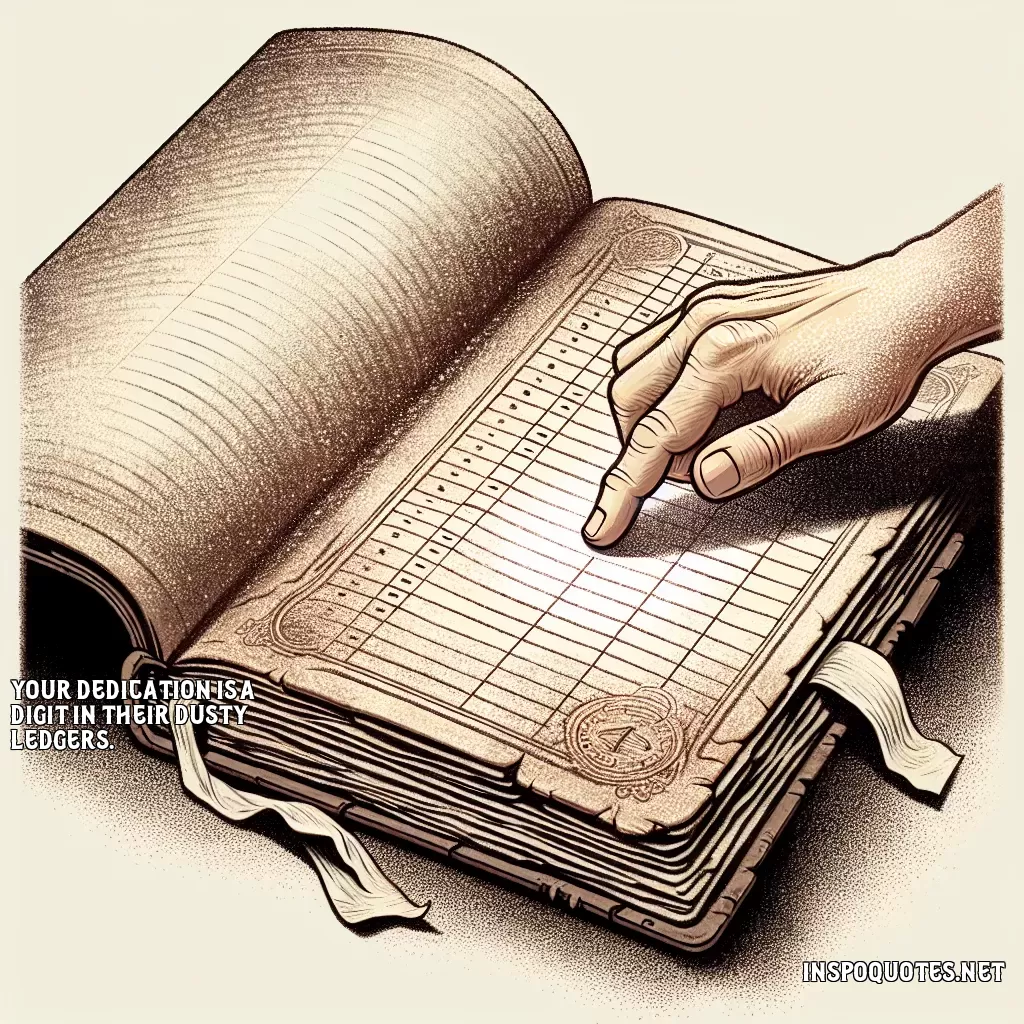
Your dedication is a digit in their dusty ledgers.
Author: Ilya Kaminsky
👁️ 12 views
This quote, "Your dedication is a digit in their dusty ledgers," offers a poignant critique of how large organizations, corporations, or bureaucracies often perceive individual contributions. At its core, the quote suggests a disconnect between the significant personal commitment of an individual and the impersonal, often undervalued recognition they receive from a larger system. The phrase "your dedication" highlights the personal investment, effort, and passion that a person might put into their work. It speaks to the idea that individuals often pour their energy and time into their responsibilities, driven by a sense of duty, ambition, or fulfillment. Dedication implies a notable level of loyalty and determination, suggesting that one's contribution is meaningful and potentially transformative. However, the remainder of the quote, "is a digit in their dusty ledgers," paints a contrasting picture. Here, "a digit" implies that the individual's effort is reduced to something as small and impersonal as a number. In accounting and record-keeping, numbers are necessary, but they lack personal context or emotional insight. "Dusty ledgers" evoke imagery of outdated, neglected record books—suggesting that the system is not only impersonal but also antiquated and unconcerned with individual significance. Overall, the quote invites reflection on the often disheartening reality where personal contributions are underappreciated, minimized to mere statistics by organizational systems that prioritize quantifiable metrics over human elements. It challenges readers to consider how they value individual dedication within larger structures and encourages a push towards more human-centric acknowledgment of people’s effort and commitment.
Quote By: Ilya Kaminsky
Ilya Kaminsky is a celebrated Ukrainian-American poet and translator, renowned for his profound and lyrical exploration of themes such as language, identity, and the human experience. Born on April 18, 1977, in Odesa, Ukraine, Kaminsky's early life was marked by the struggles of growing up in a Jewish family during a time of political turmoil. His family immigrated to the United States in 1993, seeking refuge from antisemitism and societal instability. The transition from Ukraine to the U.S. profoundly influenced Kaminsky's literary voice, as he grappled with the challenges of adapting to a new culture while retaining his rich heritage.
Kaminsky is perhaps best known for his acclaimed poetry collections, including "Dancing in Odessa" (2004) and "Deaf Republic" (2019). "Dancing in Odessa," his debut collection, won the prestigious Whiting Award and quickly established Kaminsky as a significant voice in contemporary poetry. His work is characterized by its musicality and emotional depth, often blending personal narrative with broader cultural and historical themes. In "Deaf Republic," a powerful exploration of silence and resistance, Kaminsky delves into the story of a deaf community that must navigate the complexities of oppression and war, using the lens of disability as a poignant commentary on societal issues.
Ilya Kaminsky's literary contributions have garnered him numerous awards and recognitions, including the Anthony Hecht Poetry Prize and the Guggenheim Fellowship. As a translator, he has also brought to light the works of various poets from Eastern Europe, enriching the American literary landscape with diverse voices. His own experiences with language—as someone who became deaf at a young age—serve as a powerful backdrop for his writing, fueling his commitment to finding beauty in both silence and sound.
Through his poetry, Ilya Kaminsky invites readers to reflect on the intricacies of communication, the weight of history, and the enduring hope that accompanies the human spirit. His work continues to resonate widely, establishing him as one of the most important contemporary poets of our time.